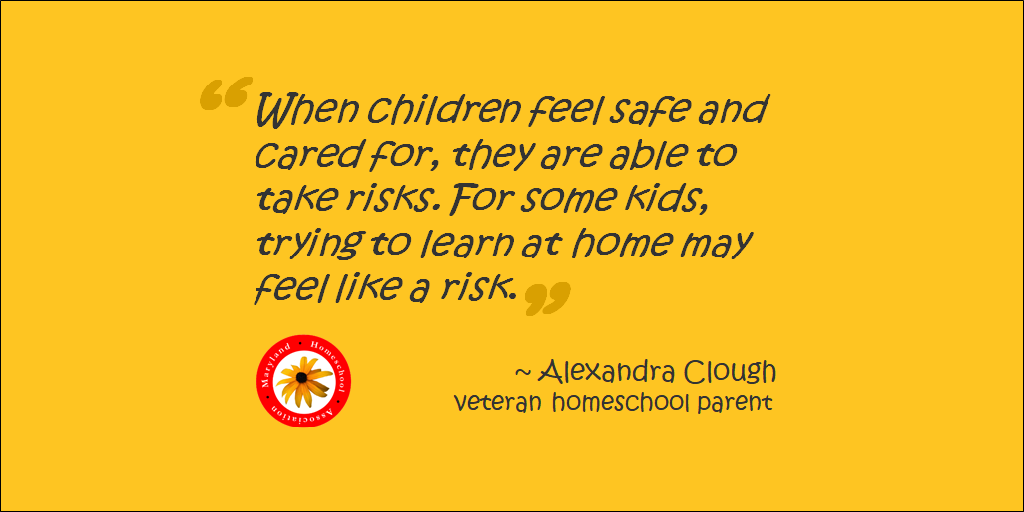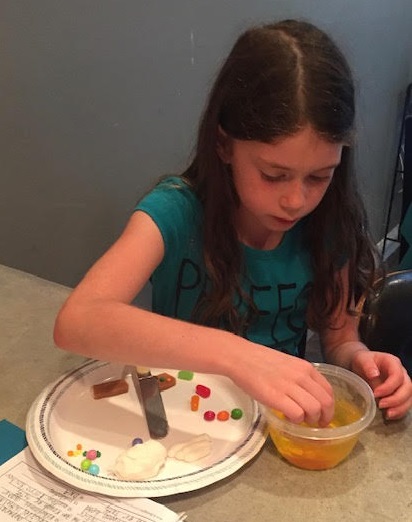The coronavirus pandemic has many parents unexpectedly educating their gifted kids at home. Feelings of overwhelmingness are totally understandable right now. You might be asking: What can I do to keep my children on track and help them continue learning while we are practicing social distancing? How will I meet their academic needs while we have less or possibly no interaction with their teachers? And, how do I satisfy my child’s insatiable desire to learn?

Here are a few tips from a fellow parent who found herself unexpectedly homeschooling her 2E (twice-exceptional) children a few years ago.
- Take a deep breath. No, seriously. Self care has to come first. You can’t pour from an empty cup. This is one of those put your own oxygen mask on first type of situations. You can’t help your child if you have nothing left to give.
- Similarly, we need to make sure a child’s physical and emotional needs are met before we can worry about learning. Educators and school support staff sometimes use the phrase “Maslow before Bloom”. That’s a hat tip to developmental psychologists and a reminder that a child’s physiological needs must always come first. A child who is tired, hungry, scared, or lonely isn’t available to learn. During a crisis like this pandemic we need to address emotional needs and relationships first. When children feel safe and cared for they are able to take risks. For some kids, trying to learn at home may feel like a risk.

- Remember that learning is natural. It is an innate part of being human. Children learn to walk and talk with our encouragement, but also on their own timetable. We want to provide the same sort of by-the-side facilitation, encouraging curiosity and persistence, as our children learn other skills. Have you ever seen your child work hard to pass the next level of a video game or struggle to perfect a new skill in their favorite sport? Learning academic skills and content can feel the same with a child setting goals and feeling pride in achieving them.
- Parents who have chosen to homeschool do it in a variety of ways. There are so many styles and philosophies ranging from something that looks very much like school at home to unschooling. While there are educational practices you may want to encourage or avoid there is no one right or wrong way to encourage learning at home.
- Parents of gifted and twice-exceptional learners often find that all-in-one curriculum doesn’t work for their students. Our children are asynchronous and tend to have “spikey” profiles with both strengths and relative weaknesses. If your children have been given grade level work to complete at home, this may be the reason why it is not working for them. In schools teachers are able to provide differentiated instruction and there may be resources like pull-out groups which are not available in the current coronavirus environment. To keep your child engaged and learning you may need to switch things up. One way to do this is to allow them to explore things they are passionate about. If, for example, your child is really into coding or drawing or movie-making or photography this is the perfect time to allow them to devote time to exploring their passion.
- Routines and schedules help children feel safe and know what to expect. It is helpful to provide children with structure, especially when there is so much about their lives that may feel different and perhaps scary. One thing many homeschoolers find helpful is focusing on a rhythm or routine rather than a strict schedule. In other words, have a sense of what needs to be accomplished before noon or 5pm or even bedtime. Create a checklist and help your kids learn how to make good decisions in time management. If everything doesn’t get done in one day, you’ll always have tomorrow.
- Outsource where you can, when you want. We can’t all be experts in everything. The best teachers facilitate student experiences which allow them to explore topics of interest. If my child really wants to learn Spanish but I don’t speak it I’m going to look at online programs such as Homeschool Spanish Academy or apps like Duolingo. There are YouTube channels where students can access well developed, research based, timely information on a plethora of subjects. Some of our free favorite channels include Crash Course, It’s Okay to Be Smart, TedEd, and Minute Physics.
- Learning can and should be fun. We love gameschooling at our house. We have a magnetic Scrabble board hanging in the kitchen and an ongoing game. Both of my kids struggle with spelling, despite many interventions over the years. This Scrabble game provides a context for practicing spelling, takes the pressure off, and makes it fun. A lot of games, such as Jenga and Blokus, may not look educational, but they actually build deep critical thinking skills. Building in a day for no schoolwork and all gaming is a tried and true homeschool strategy. You should try it.

Last modified on March 25, 2020




